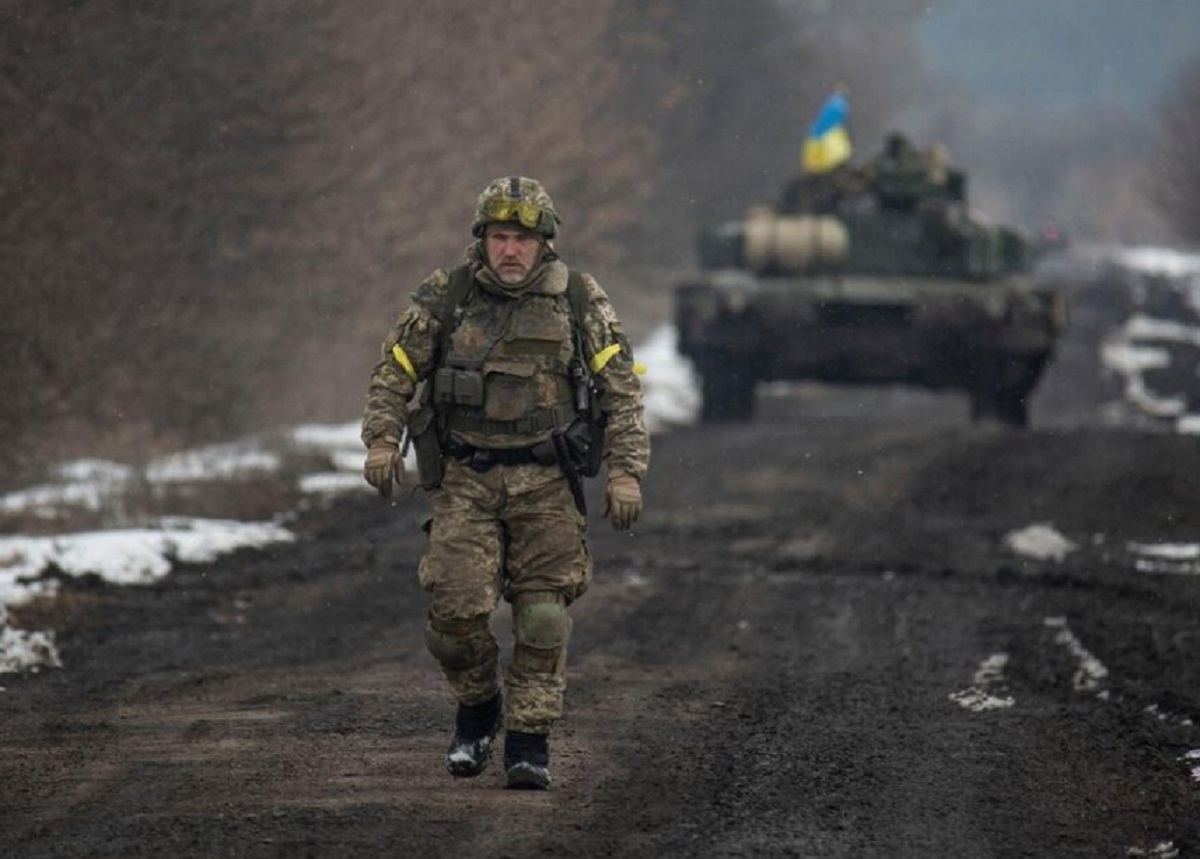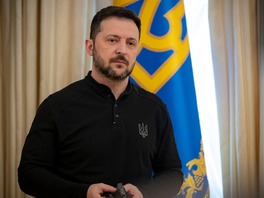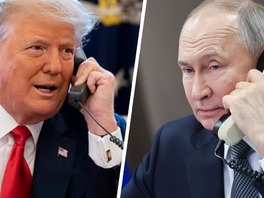In 2023, Ukraine faced several pivotal events and decisions, each exerting a profound impact on the country's political and economic landscape. The focal point was the Ukrainian Defense Forces' counteroffensive, a decision that sparked widespread resonance and escalated into tension between the military and political leadership. For an in-depth look at Ukraine's experiences in 2023, refer to the comprehensive summary in Apostrophe.
Overinflated Expectations
The climax of 2023 revolved around identifying the "culprits" for the outcomes of the counteroffensive, with discussions even broaching the potential resignation of the Chief of the General Staff of the Armed Forces of Ukraine, Valeriy Zaluzhny. The Office of President Zelensky refrained from taking such a step, primarily due to political considerations. Removing Zaluzhny at this juncture would pave the way for his entry into high-level politics, a scenario not favored by those in President Volodymyr Zelensky's inner circle.
The modest outcomes of the Ukrainian Armed Forces' offensive operations served as the primary trigger for heightened political activity, with opponents of Volodymyr Zelensky, including former prominent figures such as Petro Poroshenko and Yulia Tymoshenko, sharply intensifying their engagement. The head of "European Solidarity" decided to enhance his international contacts (including, as it turned out, with the pro-Russian government of Hungary), but in December, border authorities prevented his exit from the country. Against the backdrop of mobilization issues and somewhat unclear prospects for Western assistance, Yulia Tymoshenko demanded the government publicly disclose a "Plan B" in the war against the Kremlin. Currently, everything formally aligns with "Plan A" – returning to the borders of 1991.
‘In 2023, political activity in Ukraine resurged, albeit in a transformed format. The military's popularity, coupled with a shift in the information landscape where oligarch-controlled channels wield diminished influence, has marked this change. Notably, the military has thus far remained aloof from politics, while former players like Poroshenko and Tymoshenko, as recent studies indicate, carry excessively high disapproval ratings (exceeding 70%), making significant political dividends elusive,’ political analyst Petro Oleshchuk notes.
The Ukrainian counteroffensive, originally conceived to pave the way for a return to the borders of 1991, resonated widely not only within Ukraine but also on the international stage, creating significant expectations among Western allies.
The official acknowledgment of the commencement of the offensive operation in southern Ukraine came in June 2023. President Zelensky confirmed the Ukrainian Armed Forces' offensive in June, framing it within the context of military operations. Although he refrained from disclosing specific details about the current stage of the operation, he emphasized that the public would "feel" its progress.
However, by the fall, it became evident that the situation on the front lines did not align with the expectations of Kyiv and its Western allies. In an article for The Economist, Chief of the General Staff Valeriy Zaluzhny explained that the conflict with Russia had entered a phase of positional warfare, characterized by stagnant and protracted battles requiring the application of high technology for success.
In early December, President Zelensky acknowledged that the counteroffensive during the summer and fall did not yield significant successes. However, he underscored Ukraine's commitment to standing firm and emphasized the need for support in developing domestic arms production.
As the year concluded, there was a notable reevaluation of the military-political scenario. This reevaluation extended beyond Ukraine's armed forces to encompass Kremlin occupiers, both reflecting on the Kremlin's failed campaign in 2022 when the Russian military suffered significant losses and essentially buried their entire professional army in Ukraine.
‘In the spring of 2023, many were genuinely convinced that we would receive advanced technology and long-range weaponry from the United States, tipping the balance against the Russians. Now, it appears we have adjusted our tactics based on that experience, transitioning to an active defense. As a result, the enemy is sustaining losses of around 1,000 personnel per day, which is notably significant. The question now remains how much longer they can sustain such a level of casualties’ military analyst Ivan Stupak says.
Ukrainian society entered 2023 with heightened expectations following Russian defeats in the fall and winter of 2022. The initial optimism during the early stages of the conflict, which served as a morale boost and helped the country survive, had turned into a bitter irony in the second year of the standoff with the Kremlin. Fairly, the responsibility lies not only with the public but also with the architects of media policy who instilled a belief in swift victory within a year or so.
Following the acknowledgment of the Ukrainian Armed Forces' counteroffensive in 2023 as ineffective, tension emerged within political and military circles in Ukraine. In the recent months of autumn, global media extensively discussed the potential rift between President Volodymyr Zelensky and Chief of the General Staff Valeriy Zaluzhny. The basis for such speculations stemmed from the outcomes of the summer counteroffensive.
The Ukrainian expert community also fueled speculation on the possible dismissal of Zaluzhny. In this context, Mariana Bezuhla, the Deputy Chair of the National Security Committee in the Verkhovna Rada, sharply criticized the military command. She accused him of a lack of a clear plan of action for 2024, expressing the view on the necessity of the military leadership's resignation.
The President's office refuted the existence of any conflict, attributing it to Russian disinformation. Despite this, in an interview with the British publication The Sun, Volodymyr Zelensky cautioned the military leadership against involvement in political processes, emphasizing the necessity of focusing on the country's defensive tasks.
Corruption Scandals and Political Turmoil
The country's domestic politics were marred by scandals, with the most significant revolving around corruption within the Ministry of Defense and regional Territorial centers of recruitment and social support, colloquially referred to as ‘viyskomat’ – in soviet manner. Accusations made Defense Minister Oleksiy Reznikov to resign, sparking widespread resonance and discussions on the need for new approaches within the ministry. He was succeeded by Rustem Umerov, former head of the State Property Fund and ex-member of the Holos political party, founded by famous Ukrainian musician Sviatoslav Vakarchuk and backed by Ukrainian oligarch Victor Pincuk. A move initially perceived as risky but potentially promising by observers.
In early 2023, the Ukrainian publication Dzerkalo Tyzhnia, co-founded and edited by the wife of former Ukrainian Minister of Defense Yuriy Hrytsenko, released an investigative report alleging that the Ministry of Defense was procuring military provisions at inflated prices. It highlighted the purchase of eggs at a rate of 17 hryvnias per piece, significantly higher than their average market value of approximately 7 hryvnias in supermarkets. In August of the same year, the same publication presented another investigation, this time addressing the Ministry of Defense's acquisition of summer jackets from a Turkish company, falsely presented as winter gear for the Ukrainian Armed Forces.
Defense Minister Oleksiy Reznikov and his team vehemently denied all accusations, but in September, they all submitted their resignations. President Zelensky explained this decision as the necessity to introduce new approaches and formats of interaction between the ministry, the military, and the public.
Nevertheless, certain observers, including those in Western circles, asserted that the way Reznikov is perceived in Ukraine contrasts notably with international viewpoints. While in Ukraine, Defense Minister Oleksiy Reznikov faced a tarnished reputation stemming from scandals related to "golden" eggs and jackets for the military, on the international stage, particularly in diplomatic engagements like Ramstein, he was acknowledged for his contributions towards securing military support for Ukraine.
The next step in the fight against corruption within the military unfolded with President Volodymyr Zelensky's decision in August to dismiss all heads of regional Territorial Centers of Recruitment and Social Support en masse. The primary reason cited was widespread corruption, covering schemes for draft dodgers, the orchestrated distribution of call-up papers for the extortion purposes. Some of these centers' activities hardly differed from organized crime – involving abduction, assault, or weapon-related threats, aspects noted by Western allies.
By the end of 2023, it became evident that, as the Ukrainian proverb goes, they had thrown out the baby with the bathwater. Representatives from the specialized defense committee in the Verkhovna Rada themselves acknowledged that mobilization issues arose precisely after the Presidential Administration, with decisive intent, dismissed all regional TCR heads, as this was done not distinguishing between those who had gained more or less notoriety for questionable activities.
Repressive Mobilization
By the conclusion of 2023, the focal concern had shifted to mobilization. Reports circulated in the media suggesting that the Presidential Administration was exerting pressure on the General Staff to discharge at least one major city of regional significance by year-end. Generals shrugged, asking, ‘How can we do that? We need recruits.’ Mariana Bezuhla, Deputy Chair of the Verkhovna Rada Committee on National Security, Defense, and Intelligence, confronted Valeriy Zaluzhny, stating that he lacked any ‘war plan’ but purportedly had a demand to mobilize 20,000 individuals per month.
Volodymyr Zelensky also nodded to the military.
‘The wages of the military are paid by our population, our people, all of you—the individuals who pay taxes. Therefore, when we discuss any form of mobilization, we must be aware that one soldier represents six individuals in civilian life who contribute to tax revenues. Simply take 500,000 people, multiply it by six, and understand how challenging it is for me, the government, and all of us to find an additional 3 million to what we already have. Additional 3 million taxpayers from January,’ the President stated during a press conference on December 19.
The President's Office and representatives of the "Servant of the People" party insist that it was the General Staff that requested mobilization for 500,000 people. However, the military points fingers at officials and lawmakers, arguing that they are the ones approving the mobilization plans. The climax of this back-and-forth was the introduction of a controversial draft law on mobilization to the parliament, formally crafted by the Cabinet of Ministers. The draft contains a plethora of scandalous and contradictory provisions, rendering the mobilization process entirely inadequate if the document is adopted in its original form.
As soon as the aforementioned draft law was introduced to the Verkhovna Rada, Valeriy Zaluzhny, in the first press conference in two years since the beginning of Russia's invasion, distanced himself from such demands. He pointed out that mobilization preparation lies with the government, while the military's role is to defend the country with the necessary weapons, ammunition, and personnel. He also noted tangentially that the idea of dismissing all regional ‘military commissariats’ en masse was flawed, as they were ‘professionals.’ Therefore, according to the Chief of the General Staff, the mobilization process should be returned to its ‘former framework.’
The situation unfolded as if the Bankova (the informal name for the President's office based on the street where it is located) and aligned "Servant of the People" parliament members were trying to shift unpopular decisions onto Zaluzhny, and he refused to take on the ‘hot potato’.
'In debates surrounding mobilization, there are legitimate arguments on both sides: those asserting that citizens have a duty to defend their nation, and those underscoring the constitutional aspects of the process. For instance, granting Territorial Centers of Recruitment and Social Support the authority to include citizens in the Unified Register of Debtors, freeze bank accounts, and limit property transactions sparks concerns about potential misuse, as no one can guarantee the absence of misconduct. Reports of improved lifestyles and purchases by ordinary TCR employees, let alone the leadership of these centers, are spreading nationwide. Empowering them with such authority raises questions about how they will wield it in practice,’ Stupak says.
In the aftermath, Finance Minister Serhiy Marchenko stunned everyone by stating that our budget lacks funds for 500,000 mobilized individuals. Formally speaking, Prime Minister Denis Shmyhal is identified as the responsible party for suggesting the implementation of a repressive mobilization, which currently lacks funding.
Electoral Dilemmas
It appears that the government has chosen to scapegoat Shmyhal to avoid open conflicts with the military leadership on one hand and, on the other, not to harm electoral ratings.
All the above-mentioned problems have further aggravated the already existing problem - to hold elections or not to hold elections. The constitutional powers of the current composition of the Verkhovna Rada ended in the fall of 2023, but the parliament, in accordance with the Basic Law, continues its powers until a new parliamentary composition is elected. Presidential elections, if the Constitution is followed, should be held in the spring of 2024.
Whether they will take place remains uncertain, but throughout 2023, the Ukrainian political landscape has been actively debating the feasibility of elections. Initially, there was consideration within Bankova about the potential for a presidential campaign, driven by concerns over the legitimacy of the incumbent head of state. There were also fears that a decline in ratings might hinder Volodymyr Zelensky's chances of securing a second presidential term.
However, the head of the state later set a course towards abstaining from elections during the military operations, stating that "in the conditions of war, it is irresponsible to throw this issue into society" and that "elections are untimely right now." During the extensive press conference on December 19, the head of state reiterated the idea that elections do not take place during wartime.
‘I can't dissolve the MPs because then there will be elections, and I can't conduct elections during the war’, Zelensky said.
By the end of autumn, all political forces in the Verkhovna Rada reached a consensus by signing a memorandum on holding national elections (both presidential and parliamentary) only after the conclusion of the martial law and no sooner than six months after its conclusion.
‘The issue is not that Volodymyr Zelensky doesn't want elections. He is averse to elections under unfavorable conditions for himself, although as of the first half of 2023, Bankova was considering the option of elections. Drafts of corresponding legislative acts were even prepared and shared with experts both domestically and among international partners. This information prompted other political actors to intensify their efforts, including setting up campaign headquarters. Therefore, despite the signed memorandum, one can never say "never." The election topic, theoretically discussed in 2023, may become a reality in 2024,’ Head of the Center for Civil Society Research, Vitaliy Kulyk says.
It is important to understand that, on one hand, the reluctance to hold elections during an active phase of the war may seem logical and even justified due to numerous factors. These factors include the impossibility of organizing a fair and competitive voting process in the conditions of martial law, especially considering the presence of a large number of refugees and internally displaced persons.
In the end, reflecting on the outcomes of 2023, it's crucial not to forget that as recently as February-March 2022, the very existence of Ukraine as a sovereign state was in question. Almost two years later, the leaders of the so-called ‘second army in the world,’ Sergei Shoigu and Chief of the Russian General Staff Valery Gerasimov, proudly report to the Russian population that they have ‘managed to halt’ the advance of the Armed Forces of Ukraine. In reality, these two ineffective commanders of a ‘nuclear state’ themselves failed to grasp the unintended compliment they gave Ukraine.
The fact that we can usher in the new year of 2024 with a curtain degree of calmness indicates that there remains a possibility for the country to achieve success.





